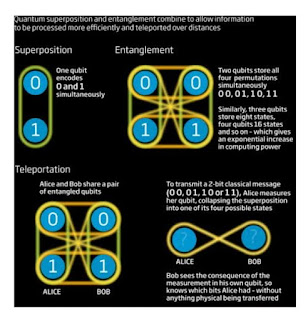Consciousness and the Quantum World: The Observer Effect and the Nature of Reality

Quantum mechanics, the fascinating and often perplexing theory that governs the behavior of particles at the smallest scales, presents us with some mind-bending concepts. One of these is the idea that everything we observe may exist in a state of probability, or more precisely, in a superposition of states, until we become conscious of it. At the heart of this idea is the wave function, a mathematical description in quantum mechanics that represents the state of a system. According to the famous Schrödinger's equation, the wave function evolves over time, describing the probabilities of different outcomes when a measurement is made. Until a measurement is made, the system is said to exist in a superposition of states, where each state has a certain probability of being observed. This notion challenges our classical understanding of the world, where objects are assumed to have definite properties independent of observation. In the quantum world, particles can exist in multiple sta...